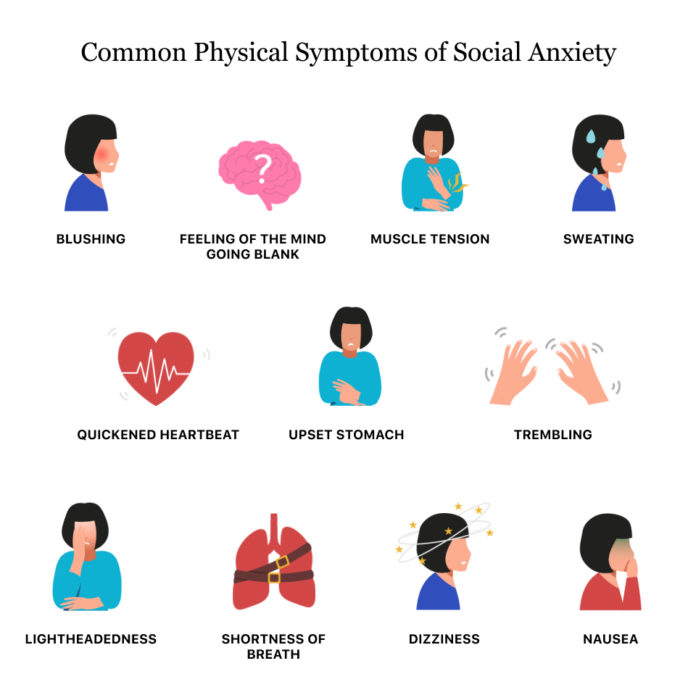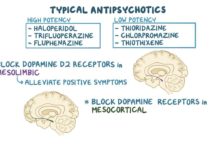Social anxiety disorder — previously known as social phobia — is an anxiety disorder in which you experience persistent fear of social or performance situations, according to the National Institute of Mental Health (NIMH). (1) People who have social anxiety disorder worry that they will behave in a way that will be embarrassing and humiliating, and that they will be judged by others, particularly people they do not know well.
Suma Chand, PhD, director of the cognitive behavior therapy program in the department of psychiatry and behavioral neuroscience at St. Louis University School of Medicine in Missouri, says people who have social anxiety often feel they need to behave perfectly in social situations, because they tend to imagine that others are superior to them and critical of them. They also have a longing for acceptance, but their fear of others' judgment can keep them from finding it.
Social anxiety disorder consists of much more than the shyness or nervousness that many people feel in common social situations, such as going on a first date or giving a presentation (“stage fright”).
The condition can interfere with daily activities and even cause people to completely avoid social interactions, even though they often realize their anxiety is irrational. "I have often had my clients tell me how they are exhausted by social situations," says Dr. Chand.
"This is because when they look back at these events, they see how their need to be perfect in social situations has caused them to experience high levels of anxiety before and during social situations,” she explains. “As a result, they often avoid many social situations — even though they feel bad about doing so.”
But, adds Chand, those with the disorder can learn to change the distortions in their thinking that lead to avoidance.
Causes and Risk Factors of Social Anxiety Disorder
There may be a genetic component to social anxiety disorder for some people. You're more likely to develop the disorder if your biological parents or siblings have the condition. (4) However, scientists still don’t understand why some family members have the condition while others don’t. (5)
Research suggests that being raised by parents who engage in negative parental practices, such as being overprotective, overly anxious, or rejecting, may contribute to the development of social anxiety. (2)
Some researchers think misreading other people’s behavior may play a role in causing social anxiety or making it worse. For example, if you think people are staring or frowning at you when they are not. (5)
Underdeveloped social skills may also contribute to social anxiety disorder.
Researchers are also investigating the roles that stress and environmental factors may play in causing social anxiety disorder.
Risk Factors
According to the Mayo Clinic, several factors can increase your chances of developing social anxiety disorder, including: (4)
Negative life experiences. Children who are teased, bullied, rejected, ridiculed, or humiliated may be more likely to develop social anxiety disorder. Family conflict, trauma, abuse, or other negative life events may also be linked to the condition.
New social or work demands. Meeting new people, giving a speech, or having to make an important presentation at work may trigger social anxiety disorder symptoms.
Having an appearance or condition that attracts attention. Facial disfigurement, stuttering, tremors due to Parkinson's disease, and other conditions can make people feel self-conscious and may trigger social anxiety disorder.
Shy temperament. Children who are shy, timid, withdrawn, or restrained when dealing with new situations or people may have an increased risk of developing the disorder. People who have social anxiety disorder commonly say they were extremely shy as children. (However, social anxiety disorder and shyness are not the same thing.) (3)
Learn More About Causes of Social Anxiety Disorder: Common Risk Factors, Genetics and More
Duration of Social Anxiety Disorder
If it isn’t treated, social anxiety disorder can last for many years, or it can be a lifelong condition. It can also prevent you from reaching your full potential. (5)
According to the Anxiety and Depression Association of America, 36 percent of people with social anxiety disorder have symptoms for at least 10 years before they get help. (3)
Complications of Social Anxiety Disorder
People with social phobia are at high risk for alcohol or other drug use, because they may wind up relying on substances to relax in social situations. (2)
Social anxiety disorder can also lead to loneliness and social isolation.
Without treatment, social anxiety disorder can interfere with work, school, relationships, and enjoyment of life, per the Mayo Clinic. (4)
It can also cause:
- Low self-esteem
- Trouble asserting yourself
- Negative self-talk
- Oversensitivity to criticism
- Poor social skills
- Difficult social relationships
- Low academic and employment achievement
- Suicide or suicide attempts
Related Conditions and Causes of Social Anxiety Disorder
Other anxiety disorders and other mental health disorders, particularly major depressive disorder, often occur with social anxiety disorder. (4)
A study published in Frontiers in Psychiatry in June 2018 also found that social anxiety disorder is more prevalent in people who have bipolar disorder. (7)
RELATED: What Is Anxiety? Symptoms, Causes, Diagnosis, Treatment, and Prevention
RELATED: Are You Simply Sad or Do You Have Major Depressive Disorder?
RELATED: Bipolar Disorder: Symptoms, Types, Causes, Treatment, and More
Resources We Love
National Institute of Mental Health
The NIMH is the lead federal agency for research on mental disorders and part of the National Institutes of Health (NIH), the largest biomedical research agency in the world. Their website offers information about the prevalence of social anxiety disorder, along with signs and symptoms, treatment, and more information.
MedlinePlus
MedlinePlus is a service of the National Library of Medicine (NLM), the world's largest medical library, which is also part of the National Institutes of Health (NIH). It offers information about the causes, symptoms, diagnosis, treatment, prognosis, and complications of social anxiety disorder.
Anxiety and Depression Association of America (ADAA)
The ADAA aims to improve the quality of life for people with anxiety, depression, and related disorders.
Additional reporting by Carlene Bauer.
Editorial Sources and Fact-Checking
- Social Anxiety Disorder. National Institute of Mental Health. November 2017.
- Social Anxiety Disorder. MedlinePlus. May 10, 2020.
- Social Anxiety Disorder. Anxiety and Depression Association of America.
- Social Anxiety Disorder. Mayo Clinic. August 29, 2017.
- Social Anxiety Disorder: More Than Just Shyness. National Institute of Mental Health.
- Steiger VR, Brühl AB, Delsignore A, et al. Pattern of Structural Brain Changes in Social Anxiety Disorder After Cognitive Behavioral Group Therapy: A Longitudinal Multimodal MRI Study. Molecular Psychology. August 2017.
- Yapici Eser H, Kacar AS, Kilciksiz CM, et al. Prevalence and Associated Features of Anxiety Disorder Comorbidity in Bipolar Disorder: A Meta-Analysis and Meta-Regression Study. Frontiers in Psychiatry. June 27, 2018.













































